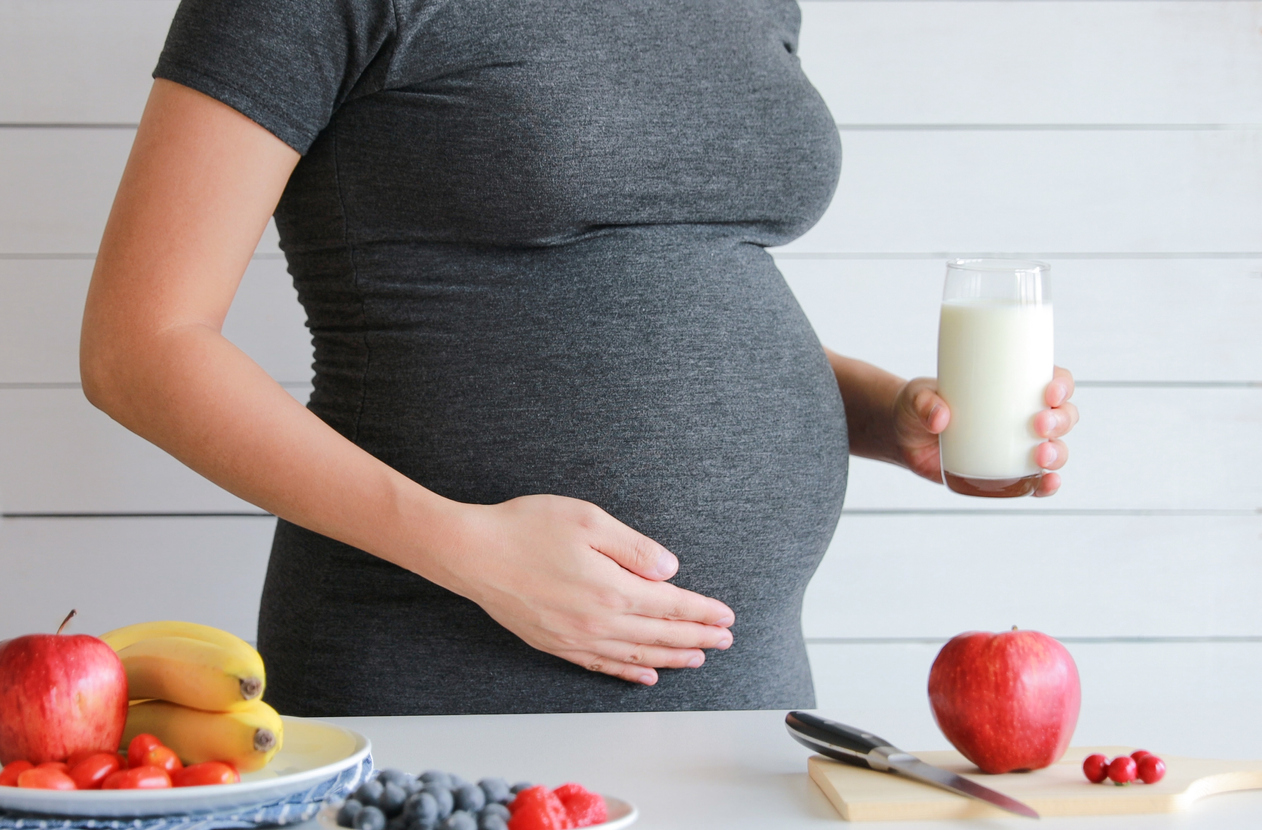Pregnancy and healthy eating
 Hormonal changes when you are pregnant can weaken your immune system making it harder to fight off infection. Foods can sometimes be a source of infection so protecting yourself from foodborne illness when you are pregnant is extremely important.
Hormonal changes when you are pregnant can weaken your immune system making it harder to fight off infection. Foods can sometimes be a source of infection so protecting yourself from foodborne illness when you are pregnant is extremely important.
Foods to avoid
If you are pregnant it is advised that you avoid the following high risk foods:
- soft and semi soft cheeses (e.g. brie, camembert and ricotta)
- cold cooked chicken (as used in sandwiches and salads)
- cold processed meats (e.g. ham, salami and pre-cut cold meats)
- prepared cold salads (from supermarkets, buffets and salad bars)
- raw and smoked seafood (e.g. oysters, sashimi, salmon and sushi)
- soft serve ice cream and thick shakes
- pate
- unpasteurised dairy products (including goats milk)
- raw eggs and food containing raw eggs (including mayonnaise, hollandaise sauce and desserts such as mousses - especially when homemade)
- raw or undercooked meats
- raw or lightly cooked sprouts (including alfalfa, broccoli sprouts, onion sprouts, sunflower sprouts, clover sprouts, radish sprouts, snow pea sprouts and soybean sprouts).
When pregnant it is also recommended to limit or avoid alcohol and caffeine.
Folate and folic acid
Folate, a B vitamin, is important during pregnancy because it is one of the few nutrients known to prevent neural tube birth defects, such as spina bifida.
The National Health and Medical Research Council recommends that a woman who is thinking about pregnancy or is in the first twelve weeks of pregnancy should take a daily supplement of 400 micrograms (mcg) of folic acid. As well as taking a supplement, check that your diet contains plenty of folate‐rich foods including fresh green leafy vegetables, chick peas, nuts, orange juice, fruits, dried beans and peas. Eating foods fortified with folic acid such as some breakfast cereals, breads and juices can also help in ensuring you are getting enough folate.
Read more about folate and folic acid
Risks involved with some foodborne illnesses
Salmonella
Pregnancy does not increase your risk of contracting salmonella, however it can be a very unpleasant experience and in rare cases may trigger miscarriage or longer term complications for the mother. Symptoms of salmonella include diarrhoea, abdominal cramps, fever, nausea, and/or vomiting.
Read more about Salmonella
Listeria
Listeria is a type of bacteria found in some foods which can cause a serious infection called listeriosis. The flu like symptoms of this illness occur between 2 days and 6 weeks after infection, although it has been known to take up to 70 days for symptoms to appear. If passed to your unborn baby listeriosis can cause premature birth, miscarriage, stillbirth or a very ill newborn. Ideally, you should only eat freshly cooked food and well-washed, freshly prepared fruits and vegetables.
Refrigeration does NOT stop the growth of Listeria. High risk foods that have been prepared and then stored in a refrigerator for more than 12 hours should not be eaten by pregnant women or other susceptible people. Choose freshly cooked and freshly prepared foods.
Read more about Listeria
Toxoplasmosis
Whilst toxoplasmosis is rare in pregnancy, it can lead to brain damage or blindness in your unborn child. Although toxoplasmosis can be caused by consuming undercooked meats or unwashed fruit and vegetables (especially from household gardens with cats), it is more commonly caused by contact with cat and dog faeces when cleaning kitty litter trays or touching contaminated soils in the garden. Whilst pregnant, it is important that hands are washed after handling raw meat, food grown in the ground or after touching animals.
Mercury in fish
Mercury in fish can lead to increased mercury levels in mothers which can pass through the placenta to the unborn child. Mercury can harm the brain or nervous system of unborn babies and young children which can lead to developmental delays. Although it is important to eat fish during pregnancy and when breastfeeding, caution should be used when choosing the type of fish.
Read more about mercury in fish
Fish to limit
To minimise the intake of mercury during pregnancy, various types of fish with higher levels of mercury should be limited to:
- shark (flake) and billfish (broadbill, swordfish and marlin), 1 serve (150g) per fortnight and no other fish that fortnight
- orange roughy (deep sea perch) or catfish, 1 serve (150g) per week and no other fish that week
- all other fish (including canned salmon or tuna in oil, mackerel, whiting, trout, trevally, bream, snapper etc) 2-3 servings per week.
More information
Watch:
Read more about:
If you have any further questions relating to the pregnancy and healthy eating, contact your medical practitioner, local Queensland Health Public Health Unit or your local council.


